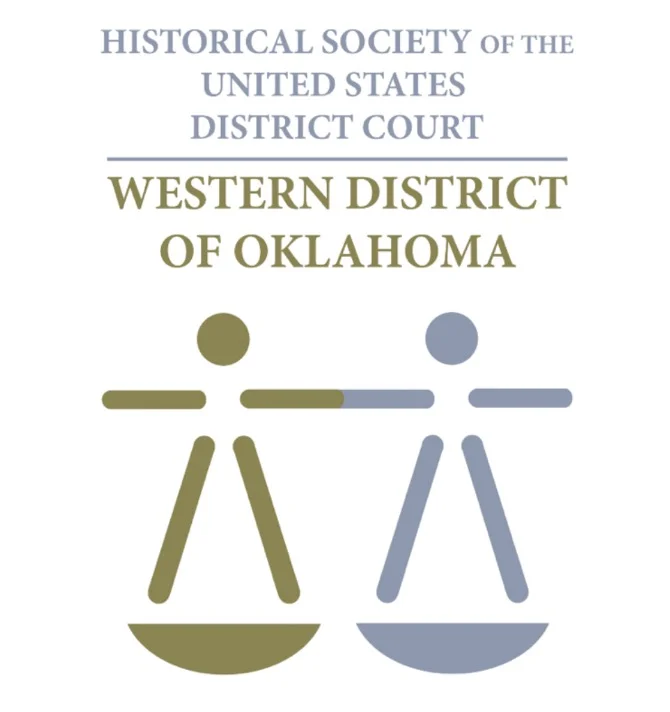EDUCATION
FIELD TRIPS AND TOURS
The Federal Judicial Learning Center & Museum welcomes groups of all ages to visit and tour the federal courthouse. Field trips are free of charge. If you would like to schedule a field trip please fill out the field trip form below. You may also contact us by email, leigh@fjlcm.org.
EDUCATIONAL RESOURCES
The Federal Judicial Learning Center and Museum is here to assist and support civics education in Oklahoma. Our exhibits, guided tours, and programs provide insight into the federal court system and are a great way to generate discussion and enhance civics education. Additional educational resources are linked below.
Oklahoma Department of Education Resources
The Oklahoma Department of Education provides social studies frameworks from pre-kindergarten through Grade 8. Linked within each standard of the framework are additional resources for educators. The frameworks are
below.
Educational Resources
The Federal Judicial Learning Center provides resources to educators and the public, highlighting the history and structure of the federal courts. Resources are linked below.
Learning materials from a network of civics education partners.
Talking Points on Judicial History
This resource is a teaching module on the history of the federal judiciary. The module contains talking points on federal judicial history, discussion questions, citing references, historical documents, and a helpful PowerPoint.
This is a collection of famous national trials in the federal system. For each trial, the Federal Judicial Center (FJC), located in Washington, D.C., provides a document discussing the case and its history in detail, a PowerPoint presentation, handouts for students, and additional resources.
State and Federal Jurisdiction
A short animated video discussing the functions of courts and the division of power between state and federal courts.
The FJC has published its learning program designed to educate federal employees on the organization and functions of the federal courts. The resource links to an eLearning program as well as the specific subsections within that program.
Understanding the Federal Courts
Explore the Administrative Office of the U.S. Courts’ guide for a clear overview of how our nation’s judicial system works.
Every year, the federal courts participate in Constitution Day by offering educational resources and experiences in their communities.
In the National Constitution Center’s Interactive Constitution, learn about the text, history, and meaning of the U.S. Constitution from leading scholars of diverse legal and philosophical perspectives.
Key aspects of the U.S. Constitution are explained in everyday language in this series of 35 short videos created by the Center for Civic Education and iCivics.
Find definitions of legal terms to help understand the federal court system.
America’s founding documents.
Activities and Games
iCivics is one of many free online educational platforms that provide a range of activities and lessons about social studies for all grades. A number of these activities about the judiciary, court cases, and the structure of the courts are linked below.
iCivics “Branches of Power” Game
Do your students like running things? Branches of Power allows them to do something that no one else can: control all three branches of government.
Do you want to argue a case in front of the U.S. Supreme Court? Argument Wars allows them to argue landmark Supreme Court cases from Brown v. Board of Education to Miranda v. Arizona from both sides.
Do you understand our nation’s varying court structures? Court Quest helps you learn what cases each type of court handles by helping people navigate their court cases.
iCivics “Do I Have a Right” Game
Do you know what rights you have? Do I Have a Right lets you manage a law firm that focuses on constitutional rights.
DocsTeach provides online activities for all grade levels, teaching students about history and civics through critical analysis of historical documents. DocsTeach notes that to the extent possible, all copyright claims to the provided lessons have been waived. Links to their activities and documents by popular topic are provided below.
Activities take students through critical analyses of historical primary source documents. The document activities can be sorted by grade level, thinking skills, and historical era. Students can complete activities on their own or with instructor guidance. At the end of the activity, students are prompted to email their activity report to their instructor.
DocsTeach has grouped their document resources under specific topic headings. Under each heading, instructors can search through narrower subtopics and obtain historical documents illustrating each subject. Some documents are accompanied by helpful descriptions detailing their history and significance.
Additional Resources
Our fellow Judicial Learning Centers across the country, government agencies, and non-profit organizations have many quality educational materials and online resources. Some of these are linked below.


